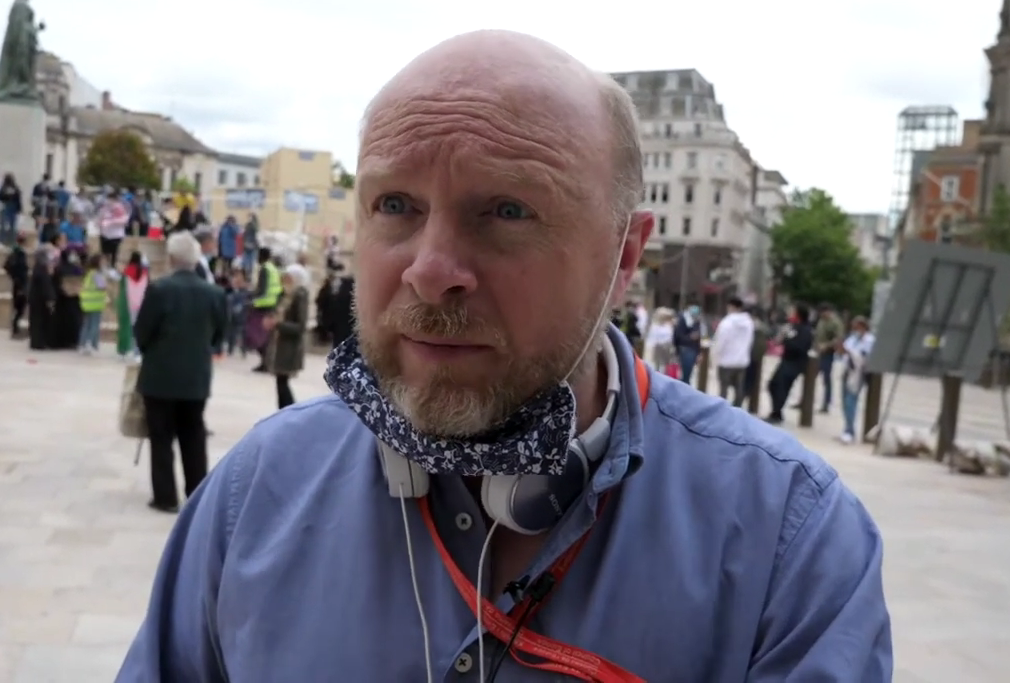John Whittaker: The Visionary Behind The Peel Group’s Rise and Regional Transformation
A deep insight into the life, legacy, and leadership of one of Britain’s most influential business magnates

Table of Contents
ToggleIntroduction
John Whittaker is a name synonymous with vision, power, and transformation in British business. As the chairman of The Peel Group, Whittaker built an empire that reshaped the economic and physical landscape of North West England. From humble beginnings in Lancashire to becoming one of the UK’s most influential property investors, his journey is an extraordinary tale of ambition, strategy, and perseverance.
Whittaker’s career reflects a blend of calculated risk-taking and long-term foresight. His developments, such as the Trafford Centre and MediaCityUK, stand as testaments to his ability to turn neglected areas into thriving economic hubs. Despite controversies and challenges, he remains a respected figure in the business world for his contribution to infrastructure, real estate, and urban regeneration.
Quick Bio
| Attribute | Details |
|---|---|
| Full Name | John Whittaker |
| Date of Birth | 14 March 1942 |
| Age | 83 years (as of 2025) |
| Birthplace | Bury, Lancashire, England |
| Nationality | British |
| Religion | Roman Catholic |
| Profession | Businessman, Investor, and Chairman of The Peel Group |
| Spouse | Patricia Whittaker |
| Children | Four |
| Parents | Jack and May Whittaker |
| Residence | Isle of Man |
| Net Worth | Estimated £1.95 Billion (2019) |
| Primary Company | The Peel Group |
Early Life and Education
John Whittaker was born in 1942 in Bury, Lancashire, into a hardworking family that valued determination and discipline. Growing up in post-war Britain, he experienced the challenges of a rebuilding nation — lessons that later shaped his resilient business philosophy. From an early age, Whittaker showed a fascination for land, development, and enterprise, inspired by his father’s business acumen.
He attended Prior Park College in Bath, a Roman Catholic boarding school that emphasized moral values, education, and leadership. Although he once considered becoming a priest, his calling eventually led him toward business. That spiritual discipline, however, continued to influence his calm yet determined leadership style throughout his career.
Career Beginnings and the Formation of The Peel Group
Whittaker’s business journey began through his family’s small property and quarry operations. Recognizing the untapped potential in industrial land, he started acquiring neglected properties and strategically transforming them into assets of long-term value. This foresight marked the foundation of what would later become The Peel Group.
By the 1970s and 1980s, Whittaker had expanded the company’s reach significantly. His landmark move came when he acquired control of the Manchester Ship Canal Company, unlocking access to vast tracts of land ripe for development. This bold decision would change the urban and economic landscape of North West England forever.
The Peel Group and Major Developments
Under Whittaker’s leadership, The Peel Group grew into one of the UK’s most powerful privately-owned business empires. The company’s portfolio spans real estate, ports, renewable energy, airports, and media. Each project reflected Whittaker’s vision of integrating commerce, lifestyle, and sustainability.
One of his greatest achievements was the Trafford Centre, opened in 1998. It became one of the largest shopping and leisure complexes in the UK, symbolizing the rebirth of Greater Manchester as a commercial hub. The Peel Group also spearheaded MediaCityUK in Salford Quays, attracting global broadcasters such as the BBC and ITV — a move that revitalized the regional economy and placed Manchester on the global media map.
Career Milestones and Achievements
Throughout his career, Whittaker proved himself a master strategist. His success was not built on luck but on timing, patience, and innovation. The Ocean Gateway Project, launched in 2013, represented a £50 billion vision to connect the Port of Liverpool with Greater Manchester through industrial and residential redevelopment. This long-term strategy showcased his ability to foresee future urban and economic trends.
In 2011, Whittaker orchestrated the sale of the Trafford Centre to Capital Shopping Centres (later Intu Properties) for £1.6 billion, cementing Peel’s influence in British property investment. Although Intu later collapsed in 2020, Whittaker’s broader portfolio ensured The Peel Group remained a dominant force across multiple industries.
Personal Life and Family
Despite his immense success, John Whittaker is known for being intensely private. He resides on the Isle of Man with his wife, Patricia Whittaker, and their four children. His parents, Jack and May Whittaker, instilled in him strong values of integrity and perseverance — qualities evident throughout his business journey.
Whittaker’s lifestyle is modest compared to many billionaires. He avoids media attention, rarely gives interviews, and focuses on his enterprises rather than public recognition. This discretion has only added to his mystique and reputation as one of the most enigmatic figures in British business.
Wealth and Source of Income
John Whittaker’s estimated net worth stands at around £1.95 billion. His wealth primarily comes from his ownership of The Peel Group, whose diverse portfolio spans ports, airports, retail, energy, and media developments.
While other tycoons often depend on short-term investments, Whittaker’s fortune is rooted in strategic land acquisition and long-term value creation. His approach ensures steady growth rather than volatility, making him a symbol of sustainable success in the real estate industry.
Challenges and Controversies
No business journey is free from challenges, and Whittaker’s story is no exception. The collapse of Intu Properties in 2020, in which Peel held a significant stake, marked a difficult period. However, this setback did not overshadow his achievements.
Critics have sometimes questioned the environmental and economic impact of large-scale developments, while others praise his projects for revitalizing neglected regions. Despite occasional controversy, Whittaker’s work continues to shape the North West’s infrastructure and job market positively.
Legacy and Influence
John Whittaker’s legacy is deeply interwoven with the economic transformation of North West England. His developments have generated thousands of jobs and brought new life to once-derelict industrial zones. The Peel Group remains a blueprint for integrated regional development that combines commerce, sustainability, and community.
Beyond business, Whittaker’s vision of long-term regional regeneration has influenced government and private sector strategies. His leadership embodies persistence, strategy, and vision — qualities that will continue to inspire future generations of entrepreneurs.
Conclusion
John Whittaker’s life reflects the essence of British enterprise — ambition grounded in strategy, and power tempered by patience. Through The Peel Group, he has redefined how land, infrastructure, and community can work together to build a better future.
His story is both a lesson in business excellence and a reminder that great leaders think decades ahead, not just in quarterly profits. Whether praised for his vision or criticized for his dominance, Whittaker remains one of the most transformative figures in the modern history of British property and development.
FAQs
1. Who is John Whittaker?
John Whittaker is a British businessman and chairman of The Peel Group, known for major projects like the Trafford Centre and MediaCityUK.
2. What is The Peel Group?
The Peel Group is a UK-based investment and property company with interests in real estate, ports, media, and energy.
3. How did John Whittaker start his career?
He began by expanding his family’s property and quarry business, later acquiring strategic land assets that built the foundation of The Peel Group.
4. What is John Whittaker’s net worth?
As of 2019 estimates, his net worth is around £1.95 billion.
5. What is John Whittaker’s legacy?
His legacy lies in transforming North West England through landmark developments and visionary regional regeneration projects.




